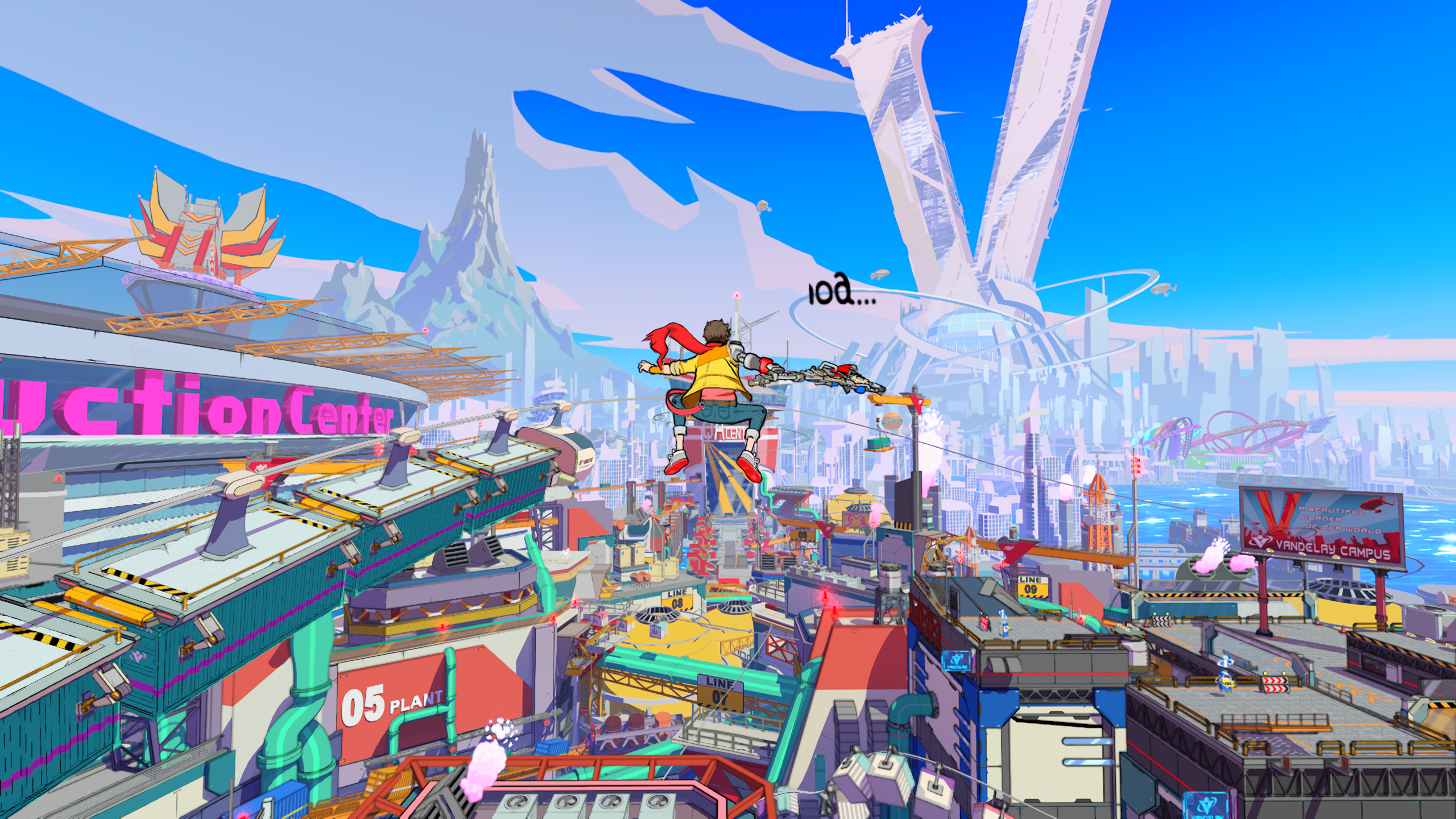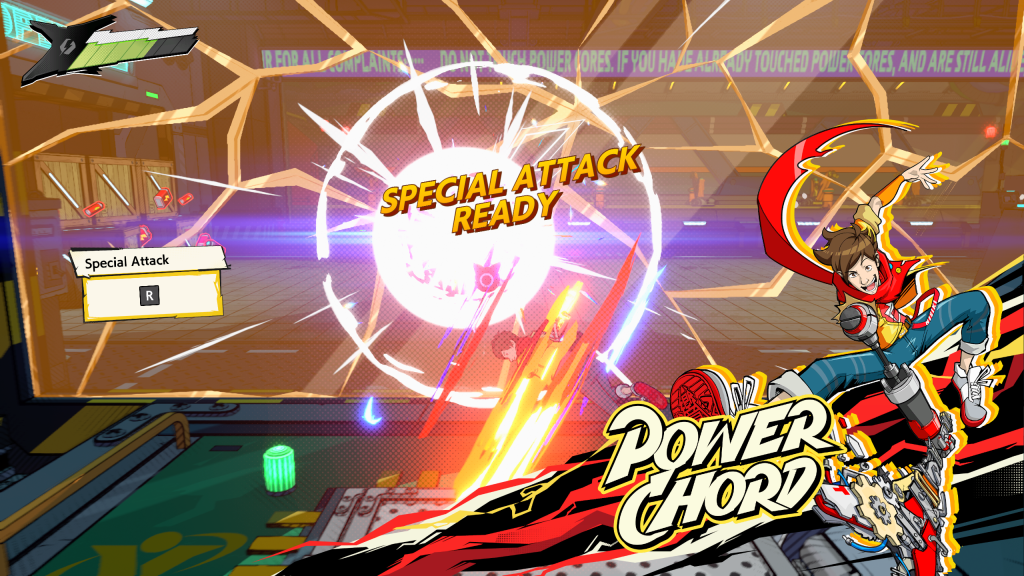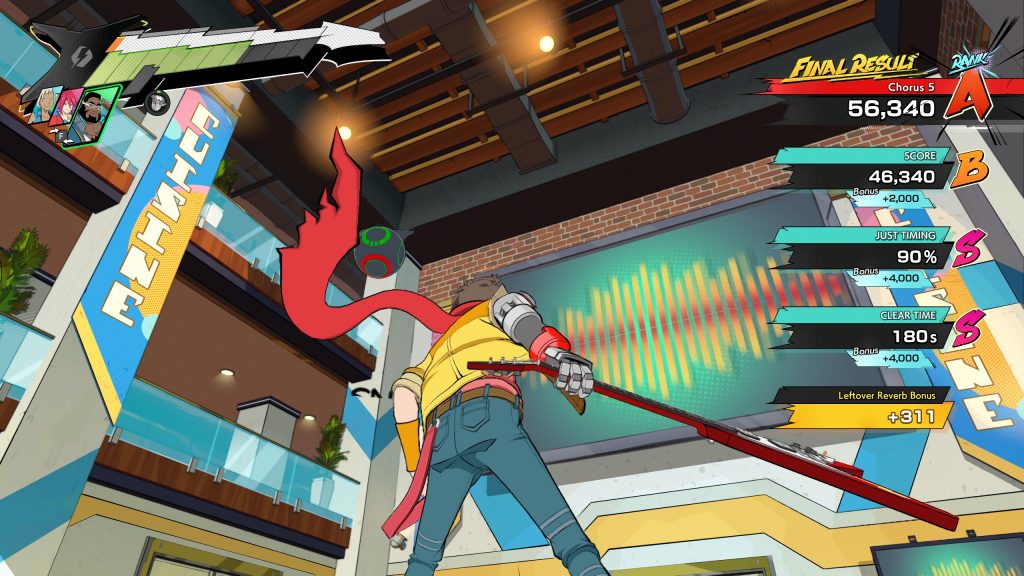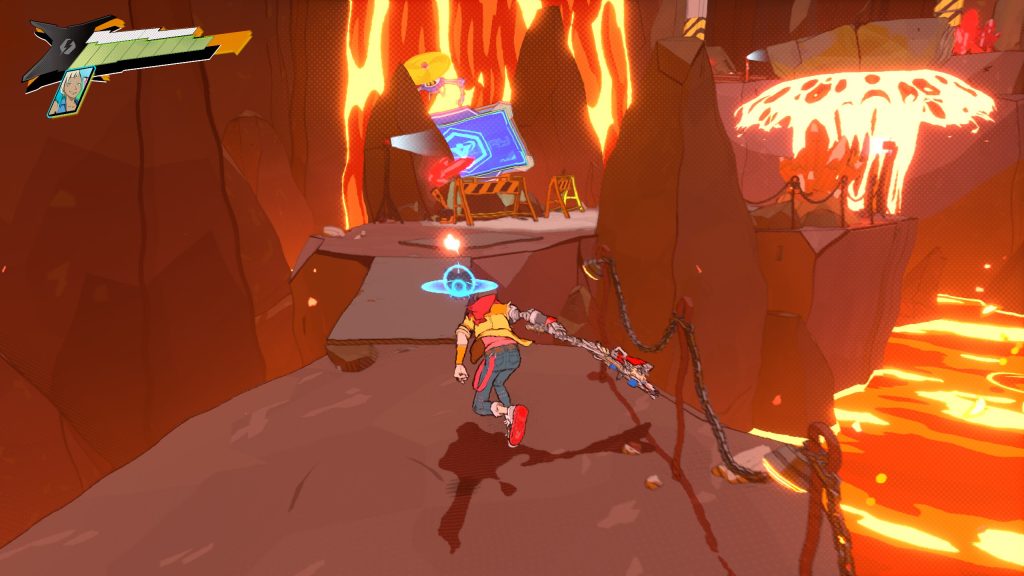
Hi-Fi Rush is a new IP from Tango Gameworks, the Bethesda subsidiary behind Ghostwire: Tokyo and the Evil Within series. It's a surprising departure in style for the studio, and it arrived fully formed with no prior promotion whatsoever. Thanks to its launch on Xbox Game Pass — a service that has somehow not yet gone to shit, price hikes notwithstanding — the stealth release garnered a healthy amount of attention and praise from critics.
Hi-Fi Rush is a rhythm action game that follows Chai, a college dropout who arrives at Vandelay Industries to volunteer for their dubious robotic prosthetic program to replace his disabled right arm. With dreams of becoming a rockstar, the new arm is what he needs to finally start learning guitar. When an incident at the facility results in his mp3 player being physically embedded into his body, he flees the quality assurance department of Vandelay as a fugitive "defect". During his escape, he meets up with other folks who are digging into the sinister motives behind Vandelay's supposedly-utopian vision.

Beatdown to the Beat
Hi-Fi Rush's core conceit is simple: it's a character action game (Devil May Cry, Bayonetta, etc.) combined with a rhythm game. Attacks do more damage if you time your hits with the beat, and combos only work if you can time the hits accordingly. Your "light" attack can land on each beat, but the "heavy" attack takes two full beats to come out. With these components, Chai can build combos and pull off a variety of special attacks. New mechanical ideas (like parrying, team-up attacks, and more) are layered on gradually enough to give space to learn, but quickly enough to always keep things interesting.
The progression structure is exactly what you'd expect from a character action game. A great number of special combos can be unlocked by spending resources on them, but to actually pull them off, you'll need to master the proper sequence of inputs. Some are fairly tricky, but often worth the trouble. Some will reward certain playstyles or provide more situational options (like aerial combos). Most of the combos are interesting enough to be worth unlocking, which can be accomplished by scrounging up the gears found in the world and dropped by enemies. There's no major need to innovate on the overall formula here, because the focal twist (the rhythm element) runs through every detail of the combo-chaining fighting system. Setting up combos has always been about timing anyways; in many cases, it feels like a more clearly-defined implementation of a classic combo system.
In fact, the most remarkable part of this marriage of genres is that it simply works so well. It accomplishes the singular joy of pulling off a barrage of varied combos and watching your "style" rank go up (using a real-time letter grading system popularized by Devil May Cry), and it does it while also having a toe-tapping soundtrack that everything moves along to. If last year's Metal: Hellsinger felt like a match made in heaven hell with it's compelling rhythm combat system (it did), Hi-Fi Rush frankly still manages to one-up it. It manages the player experience expertly; missing finishers or taking hits isn't so disruptive as to ruin the excitement, but keeps the game challenging and the need for health pickups urgent.

Cartoons With Tunes
For fans of the Devil May Cry or Bayonetta series' that Hi-Fi RUSH borrows heavily from, there's one more element that makes for a worthy entry to the genre. A stellar gameplay conceit and impressive execution is not quite enough; no, there must be style. It's all about maximalism, feats of skill and precision against an excessive and overwhelming force: to sell it, it has to look cool as hell. Hi-Fi RUSH takes a decidedly less edgy approach compared to most of its contemporaries, leaning into cartoonish animations, over-the-top physical comedy, and a bright cel-shaded visual style reminiscent of a comic book.
The story of Hi-Fi RUSH is similarly cartoony: scrappy misfits against an evil megacorp, who must use their unique and under-appreciated abilities to win the day. It can be trite, at times, but the cast is charming and the writing is full of easy wit. Chai fills the role of big-hearted dumbass shonen protagonist while the collection of weirdos he meets are charming inversions of classic archetypes. Everything else is just goofy sci-fi and workplace comedy. It's not especially novel, but it gets the job done with plenty of charisma. Attack animations and visual effects bring the level of spectacle necessary to put a grin on your face when you see them, and some sections take unexpected turns and introduce entertaining mechanical variations.
The various locations around the Vandelay campus are all ridiculous fun, and the light exploration and platforming are nice touches to pace out the fight sequences. While the set piece moments have licensed music from artists like Nine Inch Nails and The Black Keys, there are a collection of original songs that can be swapped in to replace them as a way for streamers and video content creators to avoid DMCA. The original tracks still sound great, though I think the lyrical writing struggles to hold up against the licensed ones.

Conclusion
If Infinite Guitars was the most anime game I've played this year, Hi-Fi Rush is something like a superhero cartoon. It's bombastic, hopeful, kind of cheesy, and an absolute blast to play. Its rare moments of frustration are completely overshadowed by genuine challenge, merciful checkpoints, and a good bit of combo variety to mix things up.
It's always endearing to see a talented studio pivot to a different aesthetic and gameplay style and succeed so spectacularly. Hi-Fi Rush is a very unique title but I wouldn't be upset if it a sequel was in the works. Moreover, I want to see more studios try their hand at the same shtick! I don't know if I'd describe it as "genre-defining", but it's clear that there's a niche here that's ripe for exploration.